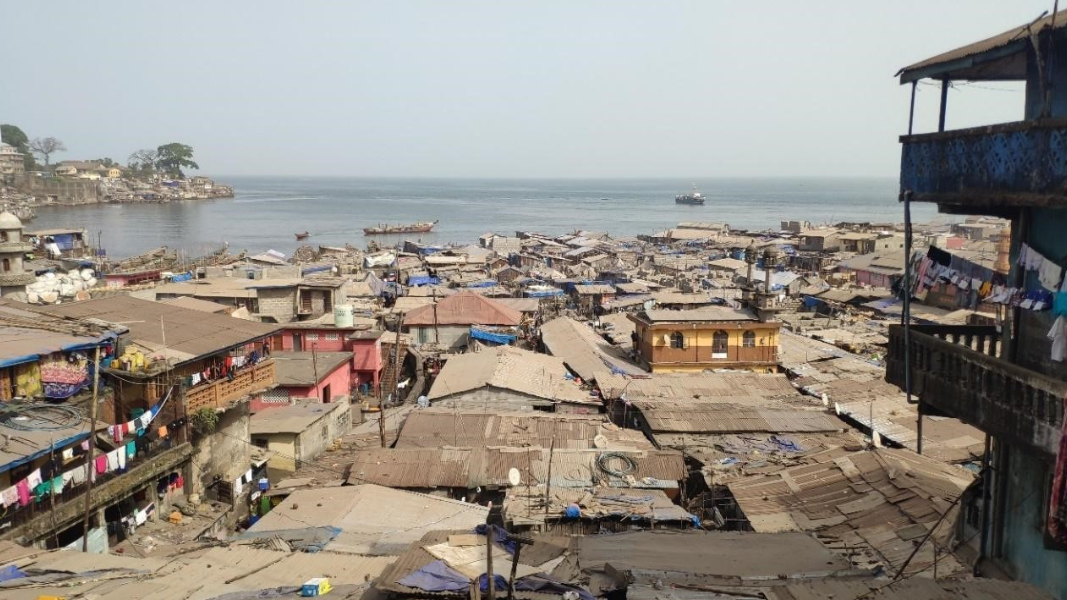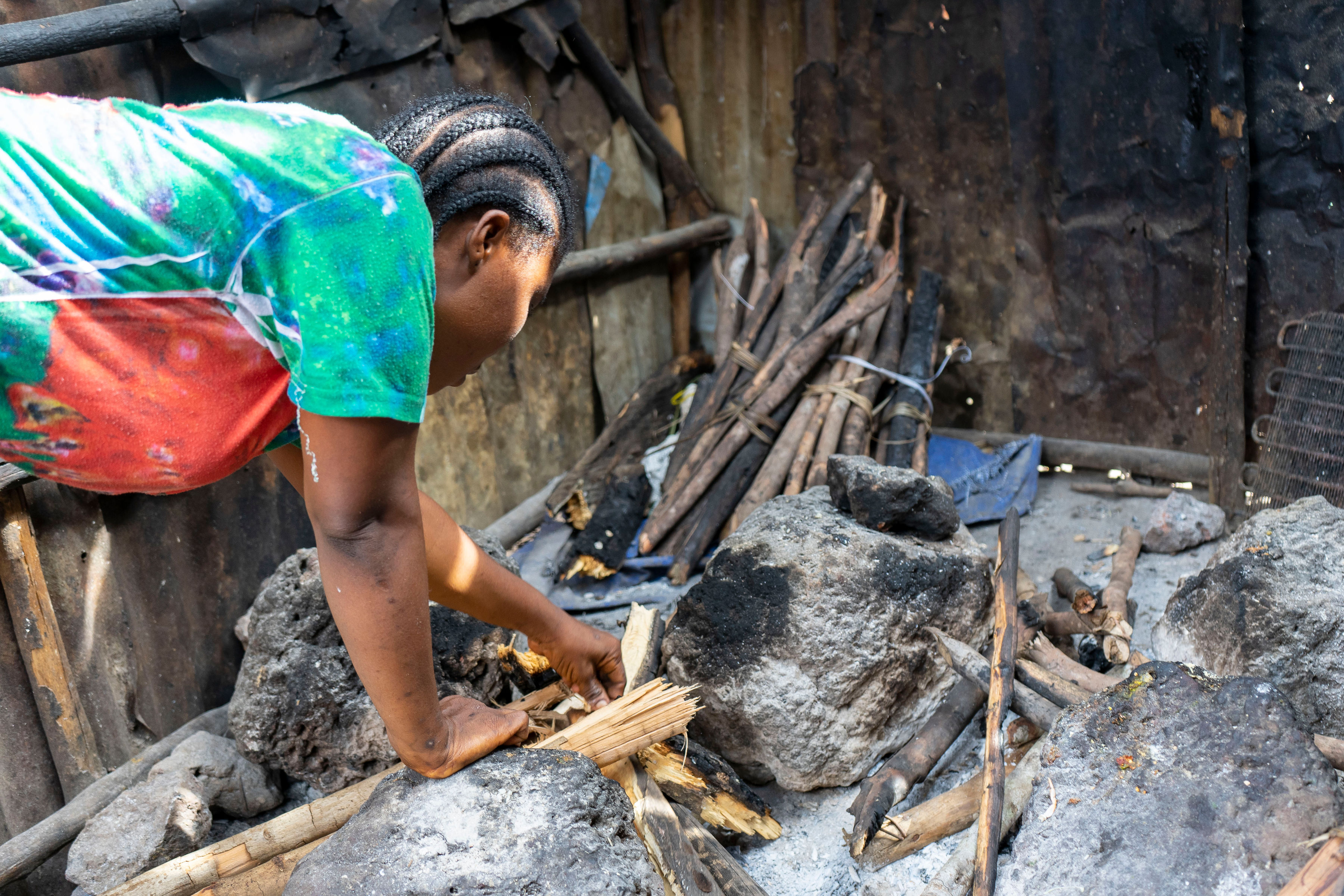ENACT identifies sustainable solutions to improve clean cooking access for Freetown's slum dwellers
In the vibrant city of Freetown, Sierra Leone, the ENACT (Enabling African Cities for Transformative Energy Access) project, implemented by ICLEI Africa and Energy 4 Impact, is on a transformative journey to improve clean cooking in urban informal settlements. With a focus on Susan's Bay, one of the largest and most disadvantaged communities in the city, home to 4,500 people facing daily struggles to access essential services, ENACT aims to identify viable and scalable solutions to address the clean cooking needs and priorities of the community.
Between January and June 2022, ENACT appointed three renowned clean cooking companies: Afrigas, ILEM Africa, and PayGas to conduct extensive assessments and delve deep into the heart of Susan's Bay to understand the current cooking practices, availability of clean cooking solutions, usage patterns, and community awareness. Armed with this knowledge, the project aims to develop comprehensive, market-responsive plans that would effectively tackle the unique challenges faced by urban informal settlements and provide residents with a more efficient and sustainable cooking experience.
The current cooking landscape in Susan's Bay
The assessments conducted by Afrigas, ILEM Africa, and PayGas revealed a concerning reality in Susan's Bay: biomass, predominantly charcoal supplemented by firewood, remain the dominant cooking fuels for over 90% of households and more than half of the community's food-based enterprises. Their reliance on inefficient stoves, such as unlined metal or unfired clay-lined stoves for charcoal, along with the traditional three-stone method for firewood, presents significant health risks, contributes to environmental degradation, hampers productivity, and imposes financial burdens on low-income households and businesses.
Households, typically comprising of five people, consume approximately two kilograms of charcoal or up to 10 kilograms of firewood daily to cook two to three meals. This represents a significant financial burden on slum residents, who spend a large proportion of their monthly income on fuel, especially those earning the national minimum wage or less. Prices tend to fluctuate based on seasonal variations and market availability, with notable differences between dry and rainy periods. Food-based micro-enterprises face even higher fuel costs, depending on their size and customer base.
Slum residents have the convenience of purchasing charcoal and/or firewood on a daily basis, spreading the cost over time. In contrast, clean cooking options like LPG require a hefty bulk payment, placing them out of reach for most people. As Yvonne Aki-Sawyerr, Mayor-elect of Freetown, in Sierra Leone, explains:
An LPG cylinder costs more than the annual rent of a slum dweller in Freetown, so we need more affordable and sustainable clean cooking solutions that have a positive impact on these people’s livelihoods.
In addition, the local community benefits from a network of conveniently located charcoal and wood retailers, with most users able to access their preferred fuel within a 15-minute walking distance. Interestingly, 70% of these retailers rely solely on this business for income. The accessibility and ease of payment of biomass fuels and the livelihoods of firewood and charcoal retailers are therefore a necessary consideration in the transition to clean cooking solutions.
The gender dynamics of cooking
The feasibility assessments also shed light on the substantial role that women and girls play in cooking, as they are at the core of both household meals and culinary businesses. Cooking responsibilities, as well as the task of procuring cooking fuels, rest on the shoulders of women and girls. This significant contribution extends to food-based micro-enterprises, where women frequently assume leadership roles, highlighting the potential for income generation through cooking. Moreover, women play a pivotal role in accessing the financial services necessary to sustain day-to-day family needs. Notably, about two out of five households maintain connections with microfinance institutions or banks, and in one-third of these instances, it is the women who uphold these relationships. However, female borrowers often encounter challenges in obtaining credit independently, without a male guarantor. Recognising the central role that women play in both household and business cooking, it is crucial to empower and equip them to lead the way in implementing clean cooking solutions within their community.
A promising outlook for clean cooking solutions
While the challenges are evident, there is a strong interest among community members in transitioning to cleaner cooking solutions. The surveying companies recommend several interventions to facilitate this transition and bring lasting benefits to the Susan's Bay community and similar urban informal settlements in Freetown. These interventions include:
- Establishing strategic partnerships with key stakeholders is central to the success of clean cooking roll-out, including government, communities, the private sector and local financial institutions that already offer financial services to the target demographic.
- Diversifying the range of clean cooking products and services to provide customers with a variety of options. This may include LPG, improved biomass stoves, and briquettes, to replace charcoal.
- Pricing clean cooking fuels in a way that aligns with the purchasing habits of end-users. For instance, allowing daily small-scale fuel purchases, or enabling regular savings for monthly bulk purchase.
- Setting up local supply points at walking distances from where customers reside or operate their food-based businesses. This could involve partnering with local retail shops or existing charcoal/wood vendors to distribute clean cooking products. Engaging with charcoal and wood sellers also helps to safeguard their livelihoods, as non-biomass solutions may be perceived as direct competition.
- Introducing credit products that improve the affordability of clean cooking stoves and other cooking accessories, which are often pricier in the short-term than traditional biomass stoves.
- Providing clean cooking solutions that meet the customers’ specific cooking needs, such as stoves capable of cooking several dishes at once, and stoves that can accommodate large cooking pots for larger families and food businesses.
- Conducting concerted education and awareness-raising campaigns highlighting the benefits of clean cooking for households and businesses.
- Providing user training to ensure the safe and proper use of clean cook stoves.
- Prioritising the inclusion of women in these initiatives, involving them directly in the supply chain.
- Integrating wood and charcoal sellers into the last mile distribution of clean cooking products, by: (a) improving the infrastructure of wood and charcoal sellers to safely store and handle assets such as LPG cylinders and stoves, (b) offering training in stove repair and maintenance, (c) providing comprehensive instructions on safety protocols, and (d) enhancing the business skills of owners.
ENACT is currently in the process of selecting a service provider to implement the recommended solutions in Susan's Bay. The aim is to showcase the economic and societal feasibility of market-led approaches for clean cooking in urban informal settlements, with the goal of creating tangible impact and paving the way for scalable and sustainable clean cooking initiatives.
For a more comprehensive version of this article, please refer to the original publication on the ICLEI Africa website.
For more detailed information about the ENACT project, including the comprehensive findings from the feasibility assessments, please visit the project page.


